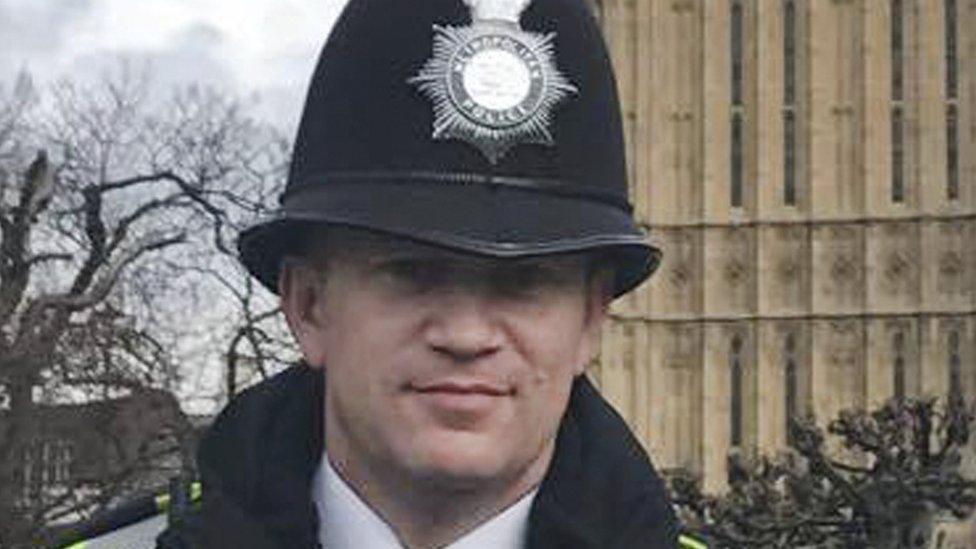Westminster attack: Parliament gates 'need to be constantly armed'
- Published
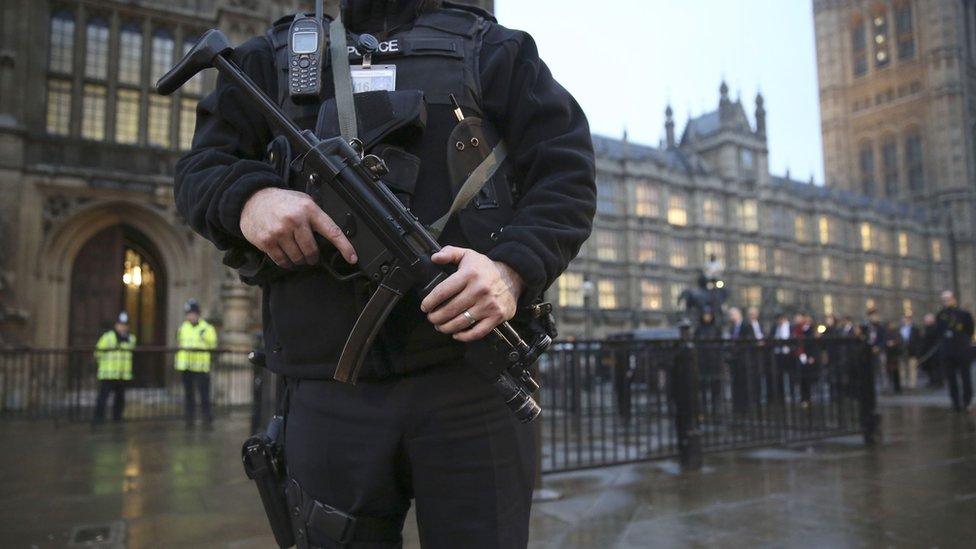
The chief coroner for England and Wales has called for armed police on all gates of Parliament following the 2017 Westminster terror attack.
In his report Mark Lucraft QC said Scotland Yard should order that there is a constant armed presence.
The coroner also urged MI5 to improve how it records the reasons why it closes investigations.
Solicitors for the families called for all of the recommendations to be swiftly implemented.
Khalid Masood killed four people on 22 March last year after hitting them with his car on Westminster Bridge - American tourist Kurt Cochran, retired window cleaner Leslie Rhodes, mother-of-two Aysha Frade and Romanian designer Andreea Cristea.
He then ran into Parliament's grounds and stabbed to death unarmed PC Keith Palmer before he himself was shot dead by other officers.

Clockwise from top left: PC Keith Palmer, Aysha Frade, Leslie Rhodes, Andreea Cristea and Kurt Cochran
Coroners have the power to write reports to the government and other public bodies that make recommendations aimed at averting further similar tragedies.
In his report, Mr Lucraft said, external: "It was a matter of concern that, at the time of the attack, one of the most vulnerable and public entrances to the Parliamentary Estate was not protected by armed police.
"In my view, the Metropolitan Police Service should consider imposing a standing order that there should be armed officers stationed at all open public entry points to the Palace of Westminster and introducing a provision that this standing order may only be varied with the written approval of an officer of very senior rank."
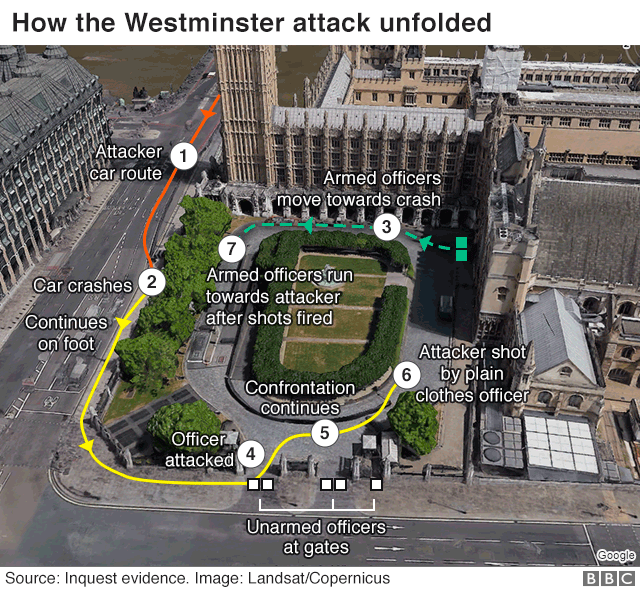
At the conclusion of the inquests, Mr Lucraft ruled that PC Palmer's death could have possibly been prevented if armed police officers had been nearby.
And he recommended that officers be trained to deal with "lone actor or multi-actor marauding attacks".
During the inquests, a senior MI5 officer revealed that the security service had once investigated Khalid Masood - but discounted him as a threat many years before he ultimately attacked.
Mr Lucraft urged MI5 to begin recording reasons for closing a file on a suspect - so that if a case were to be reopened in the future, investigators would have a full picture of what was known about the individual and why they had been discounted as a threat.
Gary Cassidy and Helen Boniface, solicitors for some of the victims, said: "Swift application of all these recommendations is crucial in demonstrating that the many lessons arising from this attack have been learned."
A spokesman for Scotland Yard said that there had been an immediate review of parliamentary security following the attack - and further work was continuing.
- Published12 October 2018
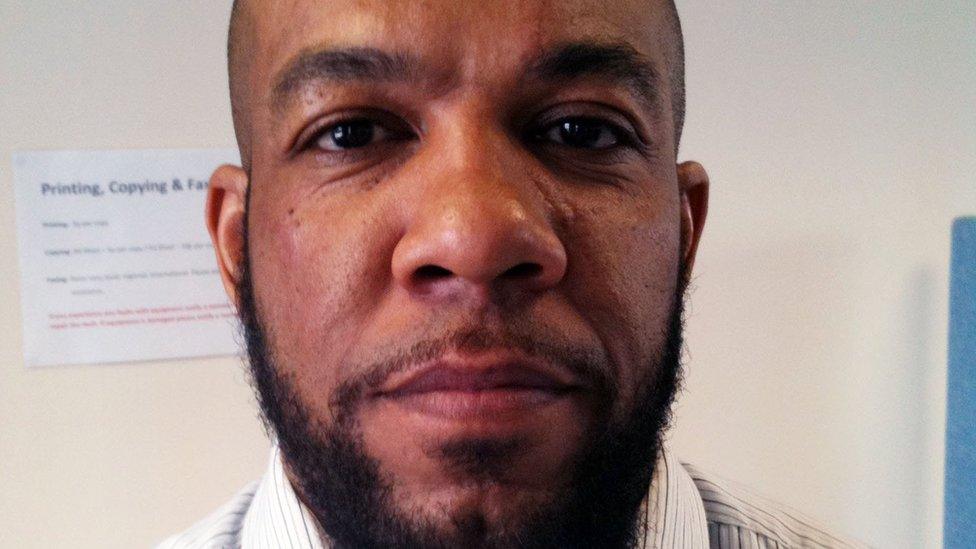
- Published10 October 2018
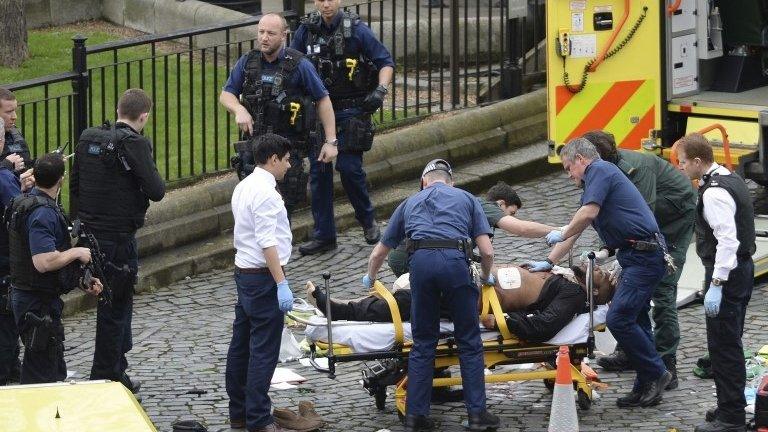
- Published3 October 2018
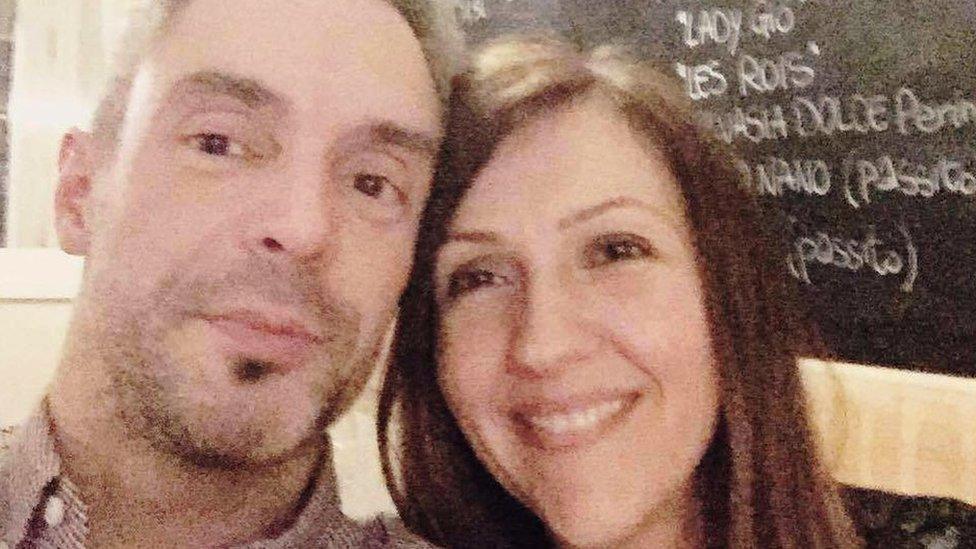
- Published3 October 2018
